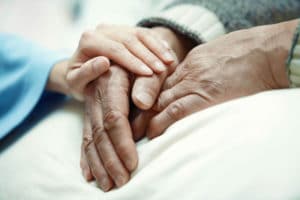
An Illinois Stockert infection lawyer can assist patients who developed severe infections after having a procedure that used the device. Used to warm and cool patients who are undergoing certain surgical procedures, including open-heart surgery, Stockert 3T Heater-Cooler Systems have been linked to potentially fatal bacterial infections. Affected patients and their families may be able to file a lawsuit and pursue damages with the help of a Illinois Stockert heater-cooler lawsuit attorney.
For more information, contact Attorney Group for Illinois today. We offer free, confidential, no obligation consultations. We can help answer your questions, and if you choose to pursue a case we can connect you with an affiliated Illinois Stockert infection lawyer who can assist you throughout the legal process.
What is a Stockert 3T Heater-Cooler System?
The Stockert 3T Heater-Cooler System (formerly the Sorin 3T System) is a medical device intended to provide temperature-controlled water to heat exchanger devices (cardiopulmonary bypass heat exchangers, cardioplegia heat exchangers and thermal regulating blankets) to warm or cool a patient during open-chest surgical procedures lasting six hours or less.
Heater-Cooler Infection Risks
According to the U.S. Food and Drug Administration (FDA), there is a possibility for nontuberculous mycobacterium (NTM) bacteria (specifically Mycobacterium chimaera) to grow in the water tanks of heater-cooler devices and then transmit through the air through a process known as aerosolization. Once in the air, bacteria can potentially enter a patient’s open chest cavity or a sterile implant. Although the chance of infection is rare, NTM infections are oftentimes overlooked because it can take a long time for them to develop or for symptoms to begin to show.
Symptoms of a potential NTM infection include:
- Nausea
- Vomiting
- Abdominal pain
- Joint pain
- Muscle pain
- Night sweats
- Fatigue
- Fever
- Pain
- Redness, heat or pus at the surgical site
Patients who experience symptoms of an infection are encouraged to contact their health care provider as soon as possible.
FDA Warnings
In 2015, the FDA issued a warning letter to the Sorin Group (now LivaNova PLC), indicating that inspections conducted at facilities in Germany and Colorado revealed significant issues, including quality system and premarket clearance violations.
Additionally, an Illinois Stockert infection lawyer notes that the FDA has released an updated safety communication informing health care providers, primary care providers, patients, hospital staff and health care facilities of the risk of infection related to the use of Stockert 3T Heater-Cooler Systems in the United States. The agency’s warning points to a European study published in April 2016 that suggests a direct link between M. chimaera bacteria that infected European patients during open-chest surgical procedures and M. chimaera bacteria that had been found on the Stockert 3T heater-cooler device used during those patients’ surgeries.
How an Illinois Stockert Infection Lawyer Can Help

Medical device makers have a duty to provide safe products. If there are risks of harm associated with their devices, they also must provide adequate warnings. If a device maker fails to fulfill this duty, it could be held liable in lawsuits for injuries that may result.
People injured by a defective Stockert heater-cooler device may be eligible to recover money for:
- Medical Expenses
- Lost Wages
- Pain and Suffering
The families of those killed may be eligible to recover money for funeral expenses and the pain that comes with losing a loved one.
The Time You Have to Pursue a Claim is Limited. Contact Us Today.
For more information, contact Attorney Group for Illinois. You can fill out the form on this page or contact us by phone or email.
After you contact us, an attorney will follow up to answer questions that you might have. There is no cost or obligation to speak with us, and any information you provide will be kept confidential.
Please note that the law limits the time you have to pursue a claim or file a lawsuit for an injury. If you think you have a case, you should not delay taking action.





